
Digital transformation is becoming vital in the public sector around the world. While in a report the World Economic Forum once called governments as “the dinosaurs of the digital age: Slow, lumbering and outdated”, Mauritius, which ranks 66th in the UN e-government Survey 2018, is aiming to embed the use of technology in the day-to-day life of every Mauritian. For experts, we do not have a choice but we have to align ourselves with digital transformation.
In this industrial revolution and daunting challenges the public service is facing, it has become essential to give way to digitalization fueled by big data, open data, smart mobile apps, data sharing through the award winning InfoHighway platform, identity verification through mobile phones, among others. Currently, we have 130 e-services in operation, both for Government agencies and parastatals and 41 new e-services will be launched.
In the Budget also, various measures have been announced, such as e-Registration Platform to allow consultants and contractors to apply for registration online, and also to effect payment of fees electronically, a modern computerized revenue collection system will be introduced to allow on-line payment of fines and other fees and revamp the Government Portal to offer more citizen-centric e-services, among others. Besides, there is also InfoHighway and Data Sharing, which is a platform for sharing of data amongst Government Agencies in the delivery of services. As at date, more than 200 e-services are being utilized through the InfoHighway and this figure is expected to grow substantially in the forthcoming years.
The economic need
Amit Achameesing, Founder of the New Economic Thinkng Academy (Sey) and lecturer at Whitefield Business School, explains that e-services are an important feature of any modern economy. “E-services increase productivity of private firms and individuals by giving more access to information in a more organized manner. As an example, Estonia, a small country like Mauritius with around 1.3 million people, is today a world leader in e-services. Citizens can access nearly all of their own data online through the State Portal. For businesses, it takes only a couple of hours to register a fully-functioning, legal company online and about three minutes to do tax returns online. It lowers the cost of doing business, reduce operational cost, cut red tape, and save time. Importantly, e-services improve public sector efficiency and create the bedrock for private entrepreneurship to thrive on. The country saves around 2 percent of GDP every year through time savings and reduced paperwork. Mauritius should emulate those leaders if it really wants to stay relevant and become a high income country in the 21st century.”
He argues that if e-services are widely implemented, and access to internet becomes truly broad, it will support economic growth for decades to come. “World renowned economist, Kenneth Arrow, intellectual breakthrough in 1962 was to identify the source of economic growth which he calls learning by doing. He argues that investment should not only be seen as investing in machines and equipment, but also as learning by doing, which incrementally improves the way we do things in society. E-services represent that kind of improvement and thus is an undeniable source of economic prosperity.”
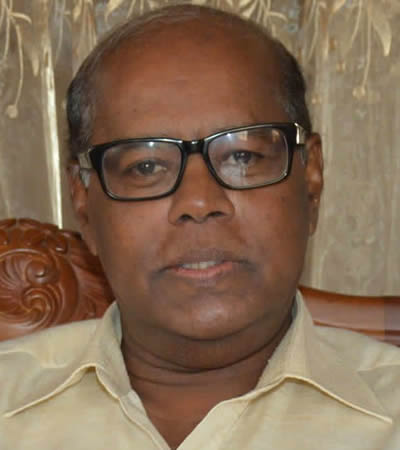 Krish Ponnusamy : “We have to improve our strategies”
Krish Ponnusamy : “We have to improve our strategies”
Former Civil high official, Krish Ponnusamy is of the view that e-service has brought a lot of progress in the country. “The Government has well-defined its strategies. If we do not double our pace today, we will lag behind other countries. We do not have much choice but to improve our strategies. The Government must make sure that all strategies devised are implemented correctly and within time frame.”
According to him, the system we have today is not sufficient. He refers to the Health and Education sectors, where we are still lagging far behind and very little has been achieved. “With e-services, the administrative climate itself will know tremendous changes. We will be having more reliable data and information. There will be more sharing of information.”
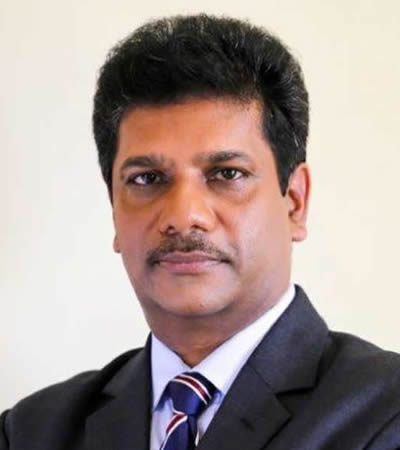 Roshan Seetohul : “The future of e-service is bright”
Roshan Seetohul : “The future of e-service is bright”
President of OTAM, Roshan Seetohul claims that there is an urgency for the policy makers, government and private companies of any developing country to act if they want to seize the opportunity of technology and modernity for the ease of business doing. “There is no doubt that the need for Mauritius to adopt e-services in all administrations is a reality in the mind and eyes of Mauritius citizens. However, are we ready as we should be in all administrations? May be not as we wish it to be. There is still room for improvement and a long way to go. This innovative technology will enable a user to conduct online transaction without the presence of a middleman.”
Usually, this kind of innovation is developed with high level of protection modules, he adds. “The future of e-service is bright but challenges remain. Security is the most important challenge that faces the implementation of e-services because without a guarantee of privacy and security, citizens will not be willing to take up e-services. Various types of spyware and security holes can definitely have a risk on data privacy and ultimately to fraud. People want to be assured that they are safe when they are conducting online services and that their information will remain secure and confidential.”
Concerning the IT infrastructure, he states that in order to make e-services a success and practical, there is a real need for a holistic approach. “We do have the adequate legal & regulatory framework which regulates this sector. We also have the adequate resiliency and network in Mauritius to be connected to the internet and the world. The expertise is here, today, in Mauritius and can definitely leverage to grow other platforms and organisations.”
 Alexander Okolo : “Proper public-private sector partnerships are beneficial”
Alexander Okolo : “Proper public-private sector partnerships are beneficial”
Head of IT & AV Services at Middlesex University states that in order to adopt e-services across various organisations, it will be important for many existing organizations to address the issue of their legacy information systems. “Only very new organizations would succeed in developing from scratch both the backbone information system and Web applications required to provide the service. Areas such as public administrations have their own systems, very often with all the relevant data about citizens, products and services. Integration, in a seamless way, of information and procedures already running on their legacy systems, would be a challenge.”
He states digital divide is one of the crucial obstacles to implementing e-services. “Some citizens may not have a means to access the e-service and others would not know how to use the technology or service. Another hurdle is resistance to change. A group of citizens would often resist changes for reasons like the fear of the unknown, or dislike towards the service provider. In other cases, they may just have less tolerance to change.”
The network and telephony distribution in Mauritius continues to improve and is one of the main components for e-service delivery, he adds. “In addition, with regards to investing in interfacing infrastructure, proper public-private sector partnerships would go a long way in reducing the cost burden considerably. However, to be successful, the partnership must benefit all stakeholders.”
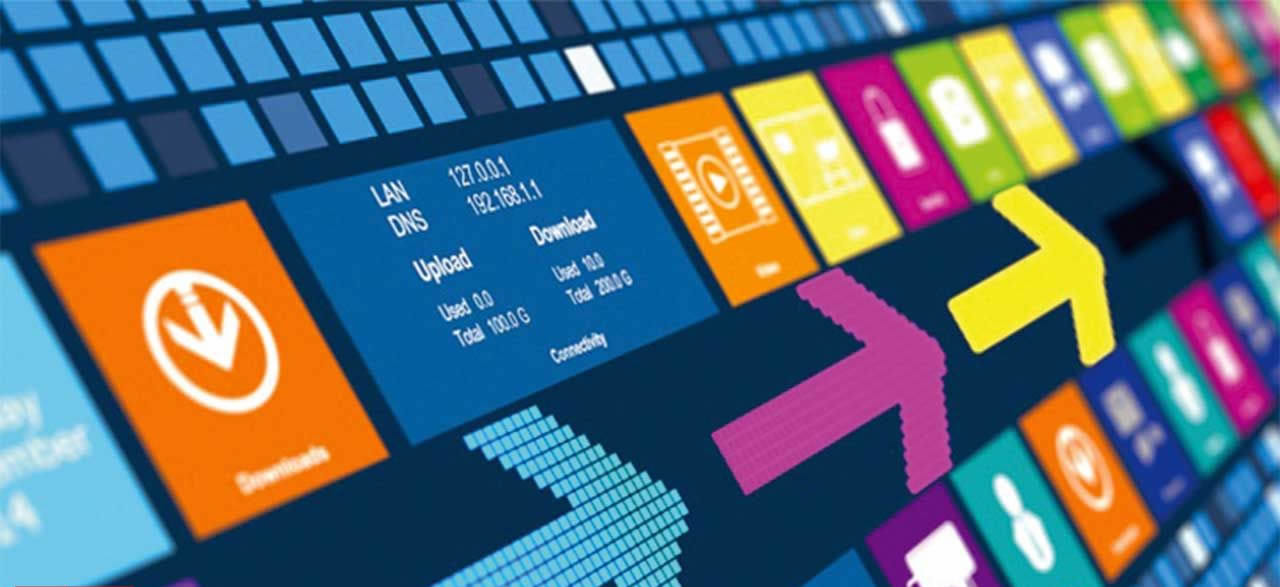
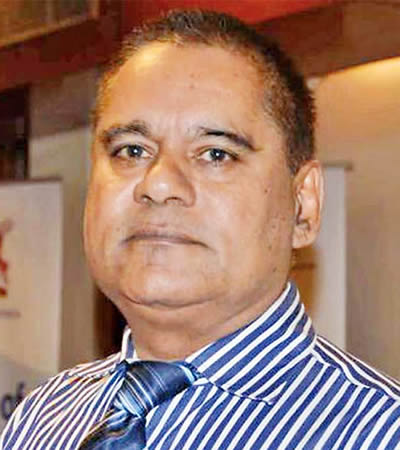 Rashid Imrith : “We are condemned to exploit e-service”
Rashid Imrith : “We are condemned to exploit e-service”
The President of the Federation of Public Sector Unions, Rashid Imrith, explains that day by day, consumers are becoming more demanding when it comes to services. “Consumers want to have rapid services. With the advent of technology and e-service, the demand of the customers is being met. Productivity has increased and services are being delivered more efficiently.”
He states that e-services of MRA have known tremendous success over the past years and hence serve as an example for other bodies to follow. “It is true that with the implementation of e-services, procedures will be easier. We are condemned to exploit e-service. There is need to invest more in the infrastructure and education of the consumers. It will be difficult for some consumers to adapt but there can be help desks in Post Offices to assist these people.”
Concerning insecurities of employees in losing the jobs, he recalls that with e-services, there will be need for life-long learning. “Reforms are important to prepare our human resources. There will be an adaptation period but we have to make it through. The Civil Service College can be useful in this matter.”
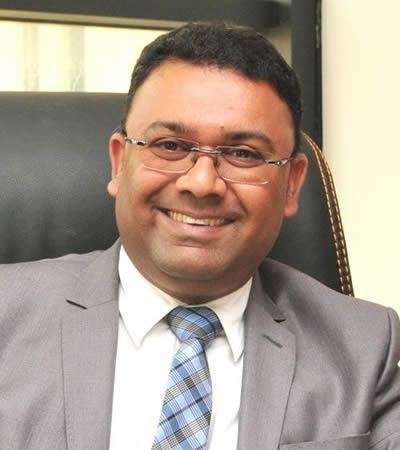 Yogida Sawmynaden : “The usage of e-services is expected to rise exponentially”
Yogida Sawmynaden : “The usage of e-services is expected to rise exponentially”
The use of e-services is expected to increase in the near future. This is the firm belief of the Minister of Technology, Communication and Innovation, Yogida Sawmynaden. He also avers that the Government relentlessly working towards encouraging Ministries and Departments as well as parastatals to find solutions through online facilities for efficient delivery of their services to the public.
Where do we stand as far as e-services are concerned?
It is a fact that the preferred mode of access to services for most people is within the comfort of their home. With the increased use of mobile equipment, citizens are now better equipped to access online services through their mobile phones or tablets.
With a view to improve public service delivery, a number of e-services has been provided for citizens and businesses. Some 130 e-services are currently in operation, both for Government agencies and parastatals. With the coming into operation of the Building and Land Use Permit System at all local authorities and other similar systems, the usage of e-services is expected to rise exponentially.
What should be done to turn towards e-services in all government institutions?
The improvement of Government systems through e-services will no doubt impact on diverse sectors of the national economy. With the evolution of technology, legacy systems will have to be reviewed and new systems will need to provide for online interfaces for the public to interact. However, the usage of these online services will determine the viability of such systems. Therefore, appropriate marketing campaign for these e-services has to be carried out to inform potential users.
With the introduction of more e-services or automated platforms, conventional jobs will become more efficient with the possibility of redeploying staff toward other jobs better suited to their aptitude."
Does it require a massive investment?
Reviewing existing systems and developing new ones automatically require huge investments with the procurement of specialized software and equipment, and adequate backend support for online transactions. But these investments are outweighed by the spin-offs to be derived out of the operation of these systems, movement of people to Government offices will be reduced and long queues will be avoided. With the introduction of new technologies like cloud computing, investment in hardware and other networking equipment is greatly reduced. The more so, when it comes to maintenance and upgrading of equipment.
Why is it that e-services have not yet been deployed in all government bodies?
Government is actually leaving no stone unturned to encourage Ministries and Departments as well as parastatals to come up with solutions with online facilities for the delivery of their services to the public. Previously, the need for introducing such facilities was still at its embryonic state in some government agencies. The Honourable Prime Minister Pravind Jugnauth has already envisioned the adaptation of current services with the fast-evolving technology for the improvement of our services.
Last year, the Online Motor Vehicle License Platform was launched to provide e-services of the National Transport Authority (NTA) for the general public and to facilitate the online payment of Motor Vehicle License.
I wish to add that some ministries and departments have deemed it the right time now to port some of their services on a Smart Mobile Application Platform developed by my Ministry last year. Eight mobile apps are now ready for download and use by our citizens. Kindly note that two of these mobile apps, namely, the Smart Police App and the Emergency Alert App, have won the World Summit on the Information Society (WSIS) Champion 2019 Prizes. The two apps have been selected among the top 5 in their respective categories. In the months to come, similar systems will mushroom for the convenience of our citizens.
Do we have the necessary platforms/infrastructure for e-services?
The Government has the necessary profile at the Government Online Centre for hosting e-services.
Do you believe e-services represent a threat for conventional jobs and thus might create a fear of loss of jobs?
No. Not at all. With the introduction of more e-services or automated platforms, conventional jobs will become more efficient with the possibility of redeploying staff toward other jobs better suited to their aptitude.
 J'aime
J'aime














